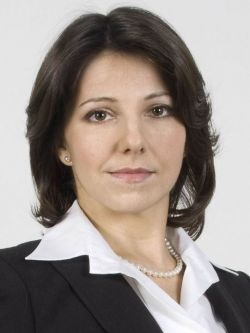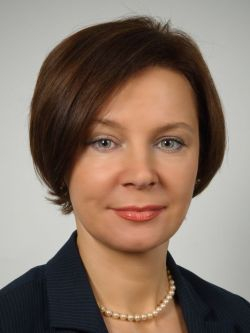This article highlights some practical issues connected with hiring highly qualified foreign specialists in Russia.

Julia Borozdna
Head of Employment and
Migration Law Practice
Pepeliaev Group LLC
The investment climate in Russia has suffered for years as a result of the undue complexity and bureaucracy faced by the foreign business community when hiring foreigners. However, on July 1, 2010, Russia cut through this red tape. It introduced a simplified procedure for obtaining employment-related migration permits (i.e. a work permit and a work visa) when hiring highly qualified foreign specialists (a “specialist”).
As practice shows, the new procedure has been an effective tool in the process of hiring foreign professionals in Russia, as employers no longer have to go through numerous administrative procedures. Moreover, a work permit and a work visa for a specialist are processed within only 14 business days and may be issued for a term of up to three years. The work visa and work permit may be extended an unlimited number of times, as long as the specialist continues to have a valid employment agreement. Additionally, a special individual income tax rate of 13 percent applies to a specialist’s income as soon as he starts work in Russia; the employing company is not obliged to pay contributions to Russian social insurance funds with regard to a specialist.
To hire a specialist, the employing company must observe certain mandatory requirements; however, these are relatively simple. For example, the specialist must be paid a salary of at least 2 million rubles (around $62,500) per year[1]; quarterly notifications must be filed with the Federal Migration Service (the “FMS”) with regard to the salary paid to the specialist, a specialist must be provided with voluntary medical insurance, etc.

Victoria Kushner
Associate
Pepeliaev Group LLC
Nevertheless, despite Federal Law No. 115-FZ “On the Legal Status of Foreign Citizens in the Russian Federation” , dated July 25, 2002, as amended, making the procedure of hiring a specialist simpler and providing various advantages, not everything is plain sailing. There are some issues and risks that should be taken into account and assessed by employers before using this method to hire a foreign employee. Below we have outlined some of the issues related to a specialist’s salary.
First of all, when structuring a specialist's salary, employers often experience difficulties with defining amounts that the FMS regards as counting towards the 2 million ruble pay requirement. Second, the rules for paying the salary to a specialist can also be problematic. Third, it is important for the employer to monitor how it performs the obligation to pay a specialist the salary to meet the annual 2 million ruble salary requirement.
It is also worth mentioning that, under the Labor Code, a specialist bears the same employment-related responsibilities and enjoys the same rights and guarantees as his Russian colleagues.
As for the salary structure, the FMS currently takes the approach that only base salary and guaranteed incentive payments (i.e. a guaranteed bonuses, regional markups, etc.) should be taken into account when assessing whether the 2 million ruble requirement is met. Thus, when structuring the specialist’s compensation package in Russia, employers should bear in mind that the FMS will not count any payments that are not guaranteed (for example, a non-guaranteed target-based annual bonus) towards the 2 million requirement.
As for the third issue (i.e. how the employer performs the obligation to pay a specialist the salary to meet the annual 2 million ruble salary requirement ), there are situations for which the FMS has not, to date, developed any practical approach or solution. In particular, there are employers who experience practical problems in meeting this requirement with regard to those specialists who, formally, are employed in Russia, but who, for viable reasons beyond the employer’s control (for example, illness, maternity leave, childcare leave, etc.), are for some time not paid salaries under their employment agreements. If the amount of annual salary paid to such a specialist (i.e. across a 365-day period) ends up being less than the required minimum, employers find themselves in a situation where they are in violation of Russian migration rules in relation to hiring specialists.
In such a situation, if the FMS adheres strictly to the letter of the law, it may impose a penalty and restrict the employer from hiring specialists for two years. Therefore, to avoid any unpleasant consequences before the FMS develops an official approach, it seems reasonable for employers to contact the FMS and seek guidance from it whenever a case of this nature occurs.
According to FMS officials, the state authority is actively working with the business community to solve the existing practical issues and to ease migration rules related to the hiring of specialists further. It can only be hoped that these joint efforts will bring the content of the law closer to the way it is implemented in practice.A Message from The Moscow Times:
Dear readers,
We are facing unprecedented challenges. Russia's Prosecutor General's Office has designated The Moscow Times as an "undesirable" organization, criminalizing our work and putting our staff at risk of prosecution. This follows our earlier unjust labeling as a "foreign agent."
These actions are direct attempts to silence independent journalism in Russia. The authorities claim our work "discredits the decisions of the Russian leadership." We see things differently: we strive to provide accurate, unbiased reporting on Russia.
We, the journalists of The Moscow Times, refuse to be silenced. But to continue our work, we need your help.
Your support, no matter how small, makes a world of difference. If you can, please support us monthly starting from just $2. It's quick to set up, and every contribution makes a significant impact.
By supporting The Moscow Times, you're defending open, independent journalism in the face of repression. Thank you for standing with us.
Remind me later.





